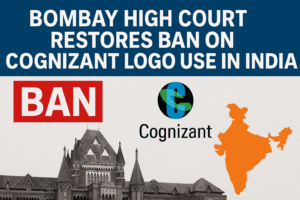The Bombay High Court has upheld the decision of the Registrar of Trade Marks rejecting the application to designate the term “TikTok” as a well-known trademark under the Trade Marks Act, 1999. The court emphasized that the app’s ban in India was a legitimate and relevant factor in the decision-making process.
Justice Manish Pitale, presiding as a single-judge bench, dismissed a plea seeking to quash the Registrar’s refusal, stating that the application was unsustainable in light of the app’s current legal status in the country.
TikTok Ban Plays Pivotal Role
TikTok, a globally popular short-video social media application owned by Chinese tech company ByteDance, has been banned in India since June 2020 due to national security concerns. This ban, the court observed, directly impacts the platform’s public perception and continued presence in the Indian market, which are critical parameters in trademark recognition.
The court cited Section 11(6) of the Trade Marks Act, which outlines the criteria to determine whether a trademark can be categorized as “well-known”. The provision allows the Registrar to consider any factor deemed relevant in the interest of assessing the mark’s familiarity, extent of use, and recognition among the public.
“The fact that TikTok is banned in India is not merely incidental but materially affects its claim to fame and distinctiveness in the Indian jurisdiction,” Justice Pitale noted. He added that since the app is no longer legally available or in commercial use in India, it fails to satisfy the test of continued and widespread recognition among the Indian public.
Implications for Foreign Trademarks
The court’s ruling could serve as a precedent for similar applications involving brands that are globally recognized but face legal or operational hurdles in India. Legal experts suggest that this decision reiterates that the well-known status of a mark is jurisdiction-specific and heavily influenced by real-time market presence.
“This judgment makes it clear that foreign entities seeking well-known trademark status in India must demonstrate not just historic popularity, but active, legal engagement with the Indian market,” said a Mumbai-based IP attorney.
TikTok’s Legal Strategy Faces Setback
The applicant had argued that despite the ban, TikTok retained its status as a globally celebrated brand and that its previous popularity in India merited recognition. However, both the Registrar and the High Court disagreed, highlighting that consumer perception must be evaluated in the present, not retrospectively.
TikTok’s parent company has not yet issued a public response to the High Court’s verdict. It remains to be seen whether the company will approach the Supreme Court to challenge the decision.
Conclusion
The Bombay High Court’s decision reinforces the principle that real-time, legal availability and market presence are vital in determining a trademark’s reputation in India. With the ban on TikTok still in effect, its aspirations for recognition as a well-known mark within the Indian legal framework have suffered a significant legal blow.




